Three UG top researchers receive ERC Advanced Grant
Three researchers from the University of Groningen have been awarded an ERC Advanced Grant. These three researchers are Prof. Gerard Roelfes (Stratingh Institute for Chemistry), Prof. Leon Koopmans (Kapteyn Astronomical Institute) and Prof. Erwin de Blok (ASTRON, Dwingeloo / Kapteyn Astronomical Institute, University of Groningen). The grants are awarded by the European Research Council. An Advanced Grant is intended for established research leaders with a recognized record of accomplishment of research achievements.
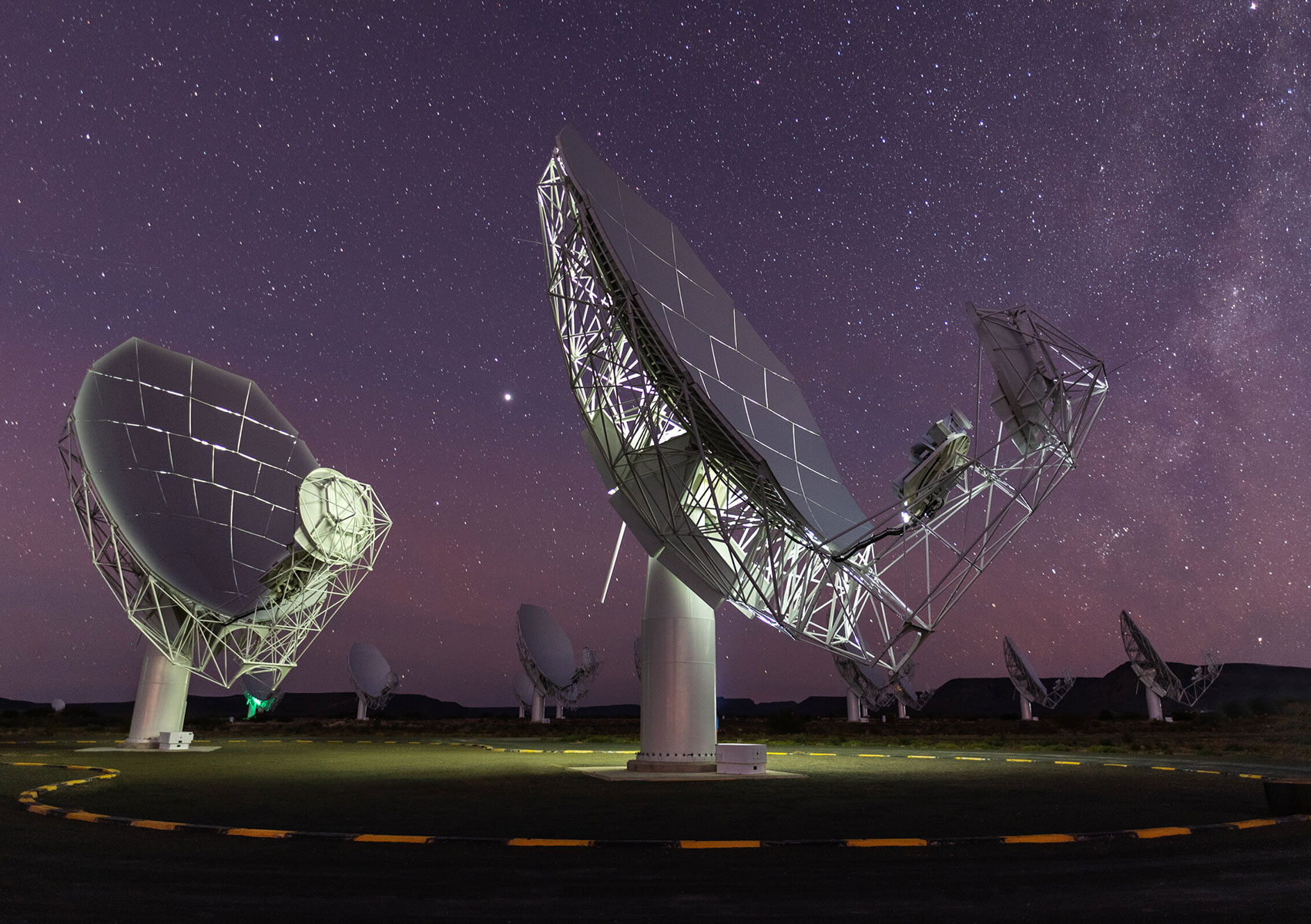
Prof. Gerard Roelfes: Designer enzymes featuring unnatural amino acids as catalytic residue
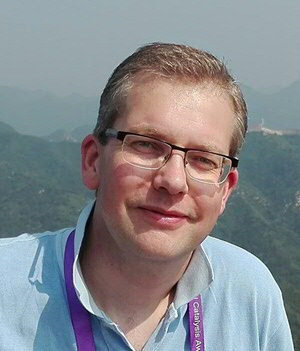
Prof. Gerard Roelfes has been awarded an ERC Advanced Grant of EUR 2.5 million for his project ‘Designer enzymes featuring unnatural amino acids as catalytic residue’ (DENZUAC). In his project, Prof. Roelfes aims to create new ‘designer’ enzymes that feature unnatural amino acids as reactive group. For this, he will make use of technology that allows to expand the genetic code with unnatural amino acids. These novel enzymes will be applied for the catalysis of important chemical reactions that have no equivalent in nature.
Biocatalysis, that is catalysis of chemical reactions by enzymes, is a key component of the transition to a more sustainable and ‘greener’ approach to Chemistry. However, natural enzymes catalyse only a limited set of reaction types, at least compared to what chemists can do. Part of this is related to the fact that natural enzymes are composed of only 20 amino acids, which limits the type of reactions they can do. The new enzymes created in this project will make it possible to carry out many more non-natural chemical reactions using biocatalysis.
Prof. Gerard Roelfes is a researcher at the Stratingh Institute for Chemistry at the University of Groningen. His areas of expertise are biomolecular chemistry & catalysis.
Prof. Léon Koopmans: CoDEX The Final 21-cm Cosmology Frontier
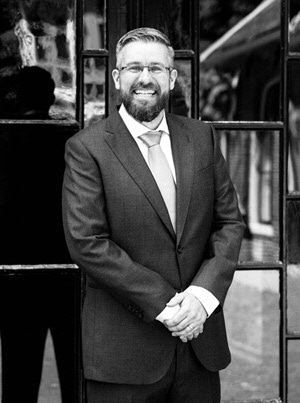
Prof. Léon Koopmans receives an ERC Advanced Grant worth EUR 3.5 million for his project ‘CoDEX The Final 21 cm Cosmology Frontier’. Of this, EUR 1 million will be spent on a new computer system for data processing and storage. This project aims to detect extremely faint radio signals of neutral hydrogen from the first billion years of our universe. To detect these signals, very sensitive observations will be used from the Dutch-built Low Frequency Array (LOFAR), the New Extension in Nançay Upgrading LOFAR (NenuFAR) in France, and the Netherlands-China Low-Frequency Explorer (NCLE) currently situated behind the moon.
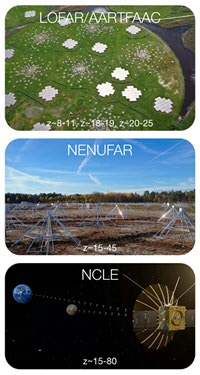
CoDEX draws together these observational programs and their expertise into a single program. This allows improving the current limits on the 21-cm power spectrum of neutral hydrogen by three to six orders of magnitude. To achieve this, researchers will process petabytes of data, strengthen efforts in the signal- and data-processing domain and enhance processing capacity. With the ERC grant, Koopmans and his research group can achieve this in the coming years before next-generation instruments, such as the Square Kilometre Array, come online.
Prof. Léon Koopmans is a researcher at the Kapteyn Astronomical Institute of the University of Groningen. His expertise is in cosmology and gravitational lensing.
Prof. Erwin de Blok: MeerGas: Finding the Origin of Gas in Galaxies with MeerKAT
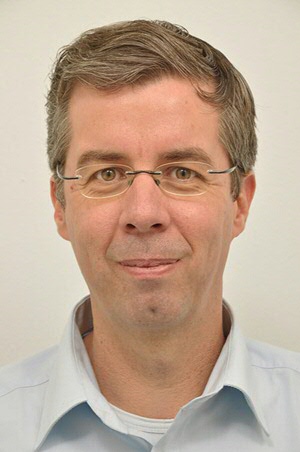
Prof. Erwin de Blok has been awarded an ERC Advanced Grant worth EUR 2.5 million for his project ‘MeerGas: Finding the Origin of Gas in Galaxies with MeerKAT’. With this project, Prof. De Blok aims to find the source of the neutral hydrogen gas in galaxies. Neutral hydrogen gas is the fuel for star formation. Most galaxies do not have enough gas reserves to form stars for their entire life. Therefore, they must be accreting gas from elsewhere. Computer simulations suggest that this gas may come from the space between galaxies. However, as the radiation that the gas emits is very faint, this process has never been observed unambiguously. Prof. De Blok and his research group will use extremely sensitive radio observations of nearby galaxies, made with the new MeerKAT radio telescope in South Africa to detect the accreting gas.
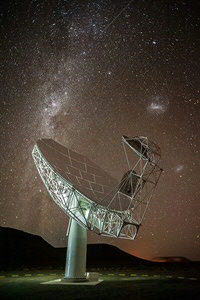
With his MeerGas project, Prof. De Blok will explore new techniques to process and analyse the large amounts of data that will come from MeerKAT. This will help in the preparations for the even greater flood of data that the Square Kilometer Array, the next-generation radio telescope, will produce.
Prof. De Blok is a Senior Astronomer at ASTRON, The Netherlands Institute for Radio Astronomy, and also associate professor at the Kapteyn Astronomical Institute of the University of Groningen. He is a Honorary Professor at the University of Cape Town in South Africa.
European Research Council
The European Research Council is the premiere European funding organization for excellent frontier research. Every year, it selects and funds the very best, creative researchers of any nationality and age, to run projects based in Europe. The ERC offers four core grant schemes: Starting, Consolidator, Advanced and Synergy Grants, plus the additional Proof of Concept grant scheme. In this round, 185 researchers have been awarded an ERC Advanced Grant, worth EUR 450 million in total.
| Last modified: | 31 March 2020 2.26 p.m. |
More news
-
24 March 2025
UG 28th in World's Most International Universities 2025 rankings
The University of Groningen has been ranked 28th in the World's Most International Universities 2025 by Times Higher Education. With this, the UG leaves behind institutions such as MIT and Harvard. The 28th place marks an increase of five places: in...
-
05 March 2025
Women in Science
The UG celebrates International Women’s Day with a special photo series: Women in Science.
-
16 December 2024
Jouke de Vries: ‘The University will have to be flexible’
2024 was a festive year for the University of Groningen. In this podcast, Jouke de Vries, the chair of the Executive Board, looks back.
